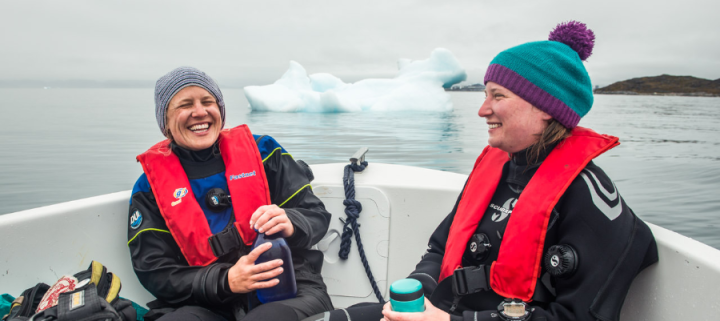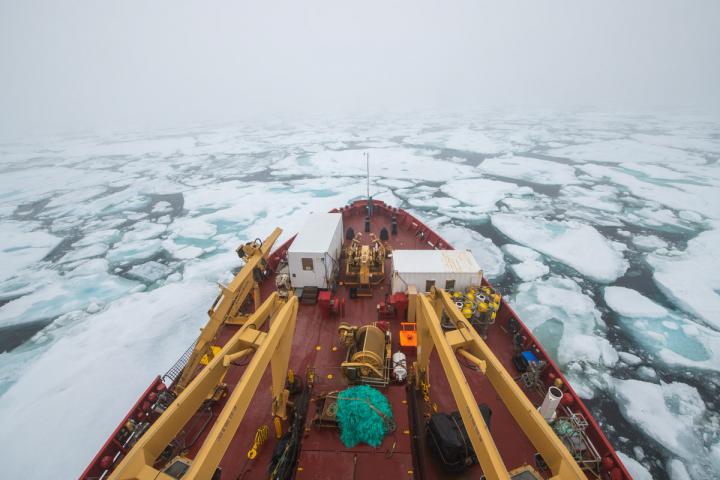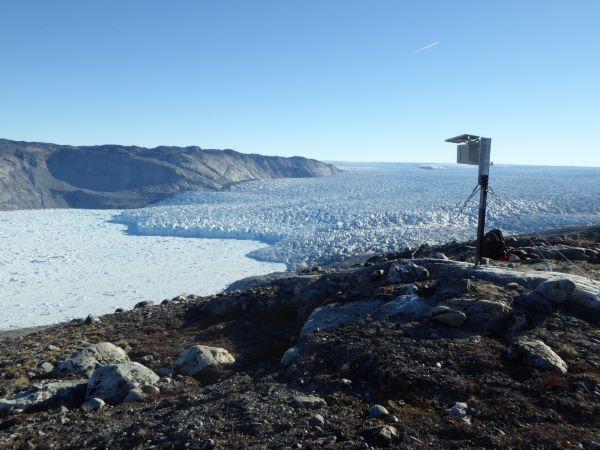Ice-Ocean Interactions & the polar oceans
The University of Edinburgh has substantial and broad-ranging expertise in studying polar oceans and ice-ocean interactions.
Due to the impacts of global climate change, Antarctic and Arctic regions host some of the most rapidly changing environments and ecosystems on our planet. Notably, the University of Edinburgh has substantial and broad-ranging expertise in polar ocean and ice-ocean interactions, with a wide-range of researchers investigating past, present, and future polar ocean conditions and ice-ocean interactions with critical implications for ice-sheet stability.
Investigating past, present, and future biogeochemical cycles in the Earth’s poles:

Our researchers hold key leadership roles and participate in national and international programmes, such as:
- The UK Changing Arctic Ocean programme (ChAOS), which examines how sea ice conditions in the Arctic Ocean influence the structure and functioning of seafloor ecosystems and carbon and nutrient cycling.
- The Southern Ocean Observing System (SOOS), which aims to enhance ocean observation and data sharing in the Southern Ocean.
- The Marine Ecosystem Assessment for the Southern Ocean (MEASO), which examines the status and changes in the Southern Ocean ecosystem from sea ice to the seafloor.

Ice-sheet and glacier melting:

At the University of Edinburgh, our researchers are observing and modelling ice loss from polar ice-sheets and glaciers, with a particular focus on ice-ocean interactions, in order to better understand future sea-level rise.
Highlights of this cutting-edge research include:
- Satellite observations of ice-sheet and glacier melting in conjunction with the European Space Agency.
- Numerical-modelling of ice-sheet melting in collaboration with the British Antarctic Survey (BAS).
- Contribution to the Intergovernmental Panel on Climate Change's (IPCC) Fifth Assessment Report on climate change.
- Investigating the links between ocean processes, marine-terminating glacier melt, ice dynamics, and ice-sheet stability.
Effects of climate change on Arctic plant communities and ecosystem processes:

Team Shrub
Based at the University of Edinburgh, Team Shrub investigates tundra ecology and climate change impacts in the Arctic and beyond. The team comprises of a interdisciplinary group of researchers who aim to better our understanding of global change and its impacts on plant communities and ecosystem processes in Northern Canada and other tundra regions.
Recent work from Team Shrub researchers include:
- Accounting for year effects and sampling error in temporal analyses of invertebrate population and biodiversity change.
- Complexity Revealed in the Greening of the Arctic.
- Landscape-scale forest loss as a catalyst of population and biodiversity change.
- Rare and common vertebrates span a wide spectrum of population trends.

